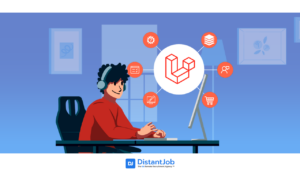Are you in a position to recruit a software developer for your new project? Or do you need a software engineer? Without a technical background, it is quite challenging to identify the difference between software engineers vs software developers.
These positions are similar but are responsible for very different parts of software creation and while there is some overlap, they have different responsibilities, focuses, and skills.
The core difference between software developer and software engineer is the scale at which their work affects a project. Engineers are concerned with the overall structure, developing a high-level view of the project, and defining the specifics of how each piece fits together. Software developers, on the other hand, are focused on building individual portions or processes within a program and are responsible for making sure that they fit together. In short, engineers work on a macro-level view of the project, while developers work on a micro-level.
While both are necessary and have some requisite overlap, they are distinctly different.
Software Engineer: Overview
Software engineers are involved in the early stages of the software development life cycle (SDLC), where the purpose and scope of a project are defined. They also build prototypes, define parameters, and determine the technical needs of the project they are working on. This may include determining how many developers are needed for a given project, setting budgets, and working with project managers to delegate workloads to different groups.
Software Developer: Overview
Where engineers are most heavily involved in the process closer to the beginning of the SDLC, software developers are in the thick of it, building, testing, and iterating the program. Each individual has less responsibility than the project engineers and, in larger companies, will work on a specific portion of the program.
In video game development, for example, developers may be hired for a hyper-specific skillset such as character movement. In the meantime, another team focuses on programming, building environments, and character styles. These teams will still report to engineers and update progress, but their overall scope of responsibility and focus is much narrower.
Software Developer vs. Software Engineer
One of the reasons that people confuse software engineers vs software developers is because their jobs can have considerable overlap. This comes from the necessary skills and knowledge software engineers require, and the fact that many software developers become engineers over the course of their careers.
They share similar work environments, working both onsite and remotely, and by nature work for the same types of companies.
What’s the difference?
The main difference is in the scope of their work and the level of responsibility that individual developers and engineers have.
A software engineer models software that can be built to specification by designing and building the structures necessary for software development. To do so, they must be able to understand the individual components of a design and their functional connections, as well as understand the extension of their developers’ abilities and software functionality.
A software developer will often be given a portion of a project to complete and will report to the engineer or a head developer who will interface with the engineer.
In small companies and startups, smaller teams can mean that an engineer will also take on developer responsibilities and vice-versa. This is the main reason why both roles often get confused.
Roles, Responsibilities, and Practices of Software Developers
Software Developers are responsible for programming the software and its systems, as designed by an Engineer. As such, their main responsibilities are:
- Programming: software developers should be knowledgeable of algorithms and programming structures that are commonly used in the field the software they’re developing is aimed at. This helps develop code in accordance with best practices that can be used and easily integrated with the code authored by the rest of the team.
- Code versioning: Developers should be comfortable and proficient with a code versioning tool of the team’s choice. It’s a standard practice that helps organize work, roll back any undesired changes with minimal effort, or develop parts of the code independently from the rest of the team to minimize disruption.
- Use IDEs and their tools: IDEs nowadays are far from being a simple programs, and provide many tools that help improve and streamline a developer’s job, such as debugging, refactoring, and providing useful code statistics. Savvy software developers should know how to use these tools to their advantage and deliver the best code possible.
Roles, Responsibilities, and Practices of Software Engineers
Software Engineers are responsible for a more broad view of a software development project. As such, they have the following responsibilities:
- Design and Problem-Solving: An engineer is tasked first and foremost with designing the various systems and components a software needs to function. Software is developed to solve a problem, and it can only do so with a thoughtful and coherent design.
- Learn Programming: Much like a developer, an engineer should also know algorithms and programming structures, but with a different goal in mind. Unlike the developer, they don’t put that knowledge into actual practice, but rather learn it so they can design software in a way that is then doable and achievable by the project’s programmers.
- Communicate with the team: While a developer can be left to their own devices once their tasks have been set, an engineer needs to be in constant communication with the team to make sure they understand the design and develop it according to specifications.
Engineers have more responsibility in a software development project, so it’s important you have capable people filling the role. When hiring, make specific questions to evaluate a candidate’s software engineer skills reliably.
Comparison Chart
| Parameter | Software Engineer | Software Developer |
| Main Function | Design the software’s systems and components | Program the software’s systems and components |
| Project Scope | Has a constant overview of the whole project | Works on a local scale and in specific systems, but can have an overview of the project when needing to interface with other systems |
| Main Output | Documentation | Code |
| Design and Problem-Solving | Project-wide, at a high level | System-wide, at a low level |
| Programming | Requires knowledge | Requires both knowledge and application |
| Team Interaction | Works and communicates the design with the whole team constantly | Can communicate with team members directly affected by their work, but will otherwise usually work by themselves |
| Salary | $110k /year on average | $100k /year on average |
Conclusion
The organisational structure of any given company will vary, but in general, some elements can be counted on.
Software developers may work on a team that falls under the umbrella of the engineering department or have their own separate department. Developers report to project managers and engineers as the progress of their work dictates when the product will be ready. In this way, software developers are the most important component in software creation.
Engineers are a must for any type of software creation. Whether they are a developer who is expanding their skills and beginning to work at a higher level, or a dedicated engineer, without a person to lead the creation of purpose, design, and deliberation, there is no program to build. Engineers interface with project managers, software developers, managers, and marketing teams. They keep other departments updated on timelines, help delineate work, and communicate expectations. In this way, software could not be created without engineers.
There may be overlap in the responsibilities of each of these positions, but ultimately they are both necessary for building new and improved programs.
If you’re looking to fill one of these positions, whether it’s a software developer or a software engineer, you can check this article on top of interview questions if you’re hiring remotely or count on us to do the work for you. At DistantJob, we’ve been helping companies find and hire the best software developers and IT talent in a blink of an eye.
No. A software engineer can (and usually will) have a developer background, but they also have a much wider view of the project and define its architecture and thus more responsibilities. A developer is tasked by an engineer with building the systems that make part of the whole software.
Ultimately, engineers and developers have distinctly different sets of skills, levels of responsibility, and scopes of focus. None is strictly better, as both are necessary for a project to be completed successfully.
With software as a service (SaaS) becoming key to succeeding in every industry from fleet management to small businesses, skilled developers and engineers are necessary for keeping up with demand. Like an architect and a carpenter, both are paramount to the construction of new, exciting solutions and technologies.
Due to their increased responsibilities, software engineers earn slightly more than developers (values taken from Talent.com’s job salary search):
Software Developers earn on average $100k /year
Software Engineers earn on average $110k /year
Senior Software Engineers earn on average about $127k /year
All these values will vary depending on the location of the company and if you’re hiring remotely, the location of the person as well.





